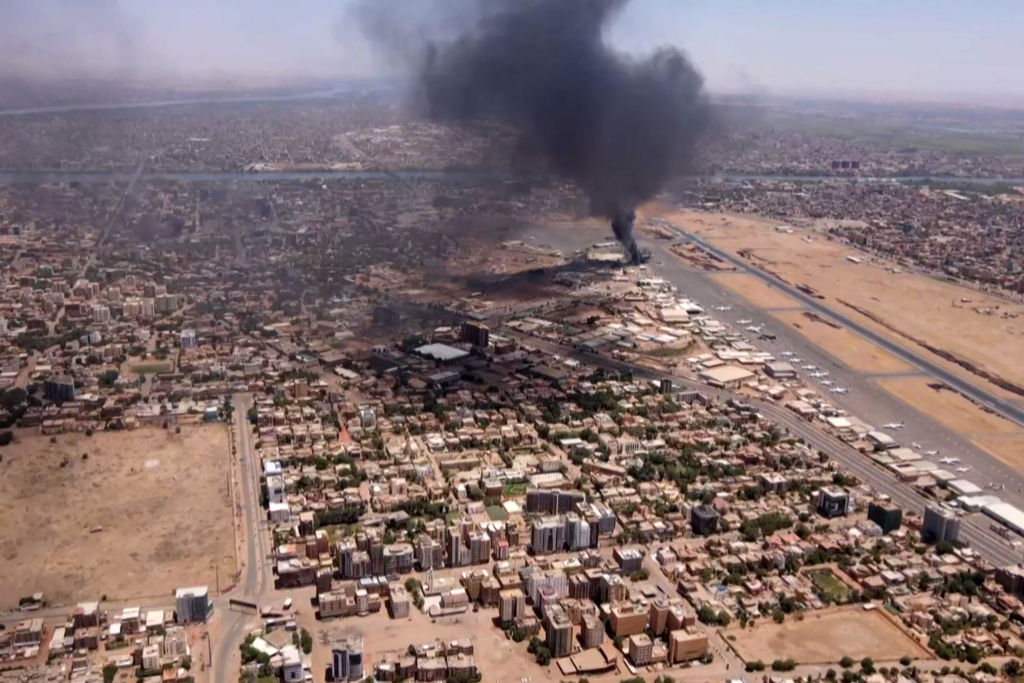Years of Friction Between Generals Erupts in Violence Throughout Sudan
ADF STAFF
Rub two objects together long enough, and you’ll eventually produce enough heat to start a fire. Such is the case with the violence that erupted on April 15 after years of political and personal friction between Sudan’s rival military leaders.
The battles that began in Khartoum quickly spread to other sites across the country. The violence grew from years of conflict between the Sudan Armed Forces (SAF), loyal to Gen. Abdel Fattah al-Burhan, and the Rapid Support Forces (RSF), the paramilitary branch led by Gen. Mohamed Hamdan Dagalo, also known as Hemedti.
Analysts fear the battle between the two strongmen could continue for months and might even draw in neighboring countries.
“In almost all neighboring countries, there is an al-Burhan supporter and a Hemedti supporter,” independent Sudan researcher Jonas Horner told Al-Jazeera. “So, if the conflict tilts against one of them, then we could see friends come to the aid of the losing side.”
Reports have already emerged of Egypt aiding al-Burhan and Libya’s eastern Gen. Khalifa Haftar sending support to Hemedti.
Sudan’s civilian population — which, since the fall of former dictator Omar al-Bashir in 2019, has spent years calling for democracy — finds itself stuck between the two military leaders with heavy artillery fire falling all around them. The planned transition to civilian rule is in limbo.
“So many of us were spelling out how [the political process] could go wrong, and it has,” Kholood Khair, founder of Confluence Advisory think tank in Khartoum, told New Lines Magazine.
Al-Burhan and Hemedti were partners in the overthrow of al-Bashir and also in the October 2021 coup that disrupted the planned transition to civilian rule. The coup cost Sudan billions in international aid and put the country’s economy into a tailspin.
Eventually, Hemedti publicly called the coup a failure and said the military should return to the barracks.
Hoping to keep the country functioning, al-Burhan reinstalled members of al-Bashir’s National Congress Party (NCP) to run the government and put other members in senior positions in the military. Many of those NCP members despised Hemedti for participating in the 2019 coup and feared that the growth of the RSF could put the authority of the SAF at risk.
Even as they cooperated in the coup, al-Burhan and Hemedti were rivals for the attention of international supporters, including Middle Eastern states and Russia’s Wagner Group, which has had a foothold in Sudan since 2017.
Hemedti and Wagner have worked together to dominate gold mining in Sudan’s western regions — a partnership that has made Hemedti extremely wealthy and helped Russia evade international sanctions to finance its invasion of Ukraine. Hemedti visited Moscow shortly before the Ukraine invasion.
As head of the SAF, al-Burhan has access to the military’s vast network of companies that are deeply integrated in the country’s economy.
Al-Burhan and Hemedti have been rivals since al-Bashir recruited the then-Janjaweed militia to put down rebellions in the Darfur region. In 2013, al-Bashir converted the Janjaweed into the paramilitary RSF with Hemedti in charge. The RSF’s job was to coup-proof al-Bashir’s rule, though it also was intended to be subordinate to the SAF when necessary.
Al-Bashir forced the rival groups to work together. That situation began to unravel when he was deposed and both sides saw an opportunity to grab power.
The violence between the SAF and RSF erupted as the country neared a post-coup agreement to put the government into civilian hands. Part of that agreement called for integrating the RSF into the SAF. Al-Burhan wanted the transition to happen in two years. Hemedti wanted it to happen over 10 years.
Democracy advocates say neither military leader had planned to cede power.
“The ongoing events are the plan of loyalists of the former regime, aiming to destroy the political process,” the Forces of Freedom and Change, a coalition of pro-democracy parties, said in a statement shortly before fighting began between the SAF and RSF.
Instead, al-Burhan and Hemedti appear determined to destroy each other — even if it means leaving their country in ruins as they do so, analysts say.
“The writing was on the wall,” Khair told New Lines Magazine. “It is now written in blood.”


Comments are closed.